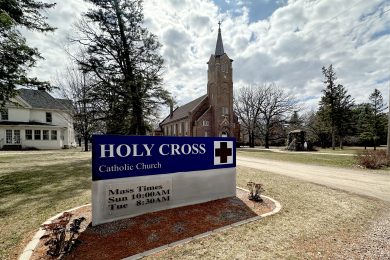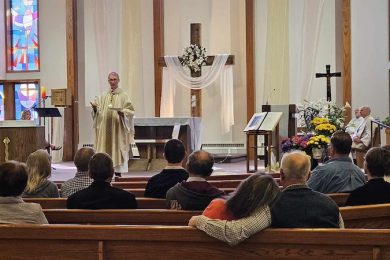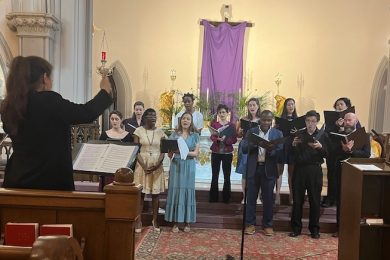“This Blessed Earth: A Year in the Life of an American Family Farm” by Ted Genoways; W.W. Norton; September 2017; 240 pp; $26.95
By Ann Jonas
For The Visitor
Ted Genoways, a fourth-generation Nebraskan and award-winning poet, journalist and editor, noticed a few years ago “how agri-culture was transformed into agri-business while most of the country wasn’t watching.”
According to his website, Genoways noted that “the products from some of the largest and most industrialized food producers in the world are packaged with logos featuring red Dutch gambrel barns, white farmhouses, and smiling farm families decked out in denim shirts and overalls, holding grandchildren and hand tools for hoeing rows.” John Hansen, state president of the Nebraska Farmers Union, told him “It’s the most egregious case of identity theft in American history.”
 Genoways wondered whether this change in food production was benefiting family farmers and set out to find a farm family that was willing to let him follow their operation from “harvest, calving, planting, breeding, corn de-tasseling, livestock sale and harvest again.”
Genoways wondered whether this change in food production was benefiting family farmers and set out to find a farm family that was willing to let him follow their operation from “harvest, calving, planting, breeding, corn de-tasseling, livestock sale and harvest again.”
Fortuitously, he met Rick Hammond, who grew up on a farm and currently farms on his wife’s fifth-generation homestead in east-central Nebraska. The Hammonds agreed to allow Genoways into their lives just as Meghan Hammond and her fiancé, Kyle Galloway, were talking of getting married and then taking over the farm operations from her father, Rick.
Handing over control of the farm operations, Genoways points out, is one of the hardest times in the life of any family farm.
The intergenerational struggles can be complex and stressful, and the Hammonds had those along with many other challenges.
After almost 10 years of record-high prices for corn and soybeans, prices had recently taken a sharp nosedive, making it tough for family farmers to survive. Rick Hammond had tried raising organic corn to feed his cattle, but without much success, and was now growing genetically modified seed corn for DuPont Pioneer because he received a guaranteed rate from the seed corn giant.
In addition, the proposed Keystone XL pipeline project, which was to carry crude oil from Canada to the Texas Gulf Coast, was slated to cut right through large portions of the Hammond farmland. The Hammonds vehemently opposed the pipeline project, as they felt it threatened the Ogallala Aquifer, which they relied on for fresh water to drink, irrigate their crops and water their cattle. Their opposition to the project cost them the chance to continue renting a large and productive piece of land from a neighbor who was in favor of the pipeline project.
“This Blessed Earth” chronicles all these challenges and more, while delving into the rapidly changing world of small family farms.
Ann Jonas is the general book buyer for the College of St. Benedict and St. John’s University.





















